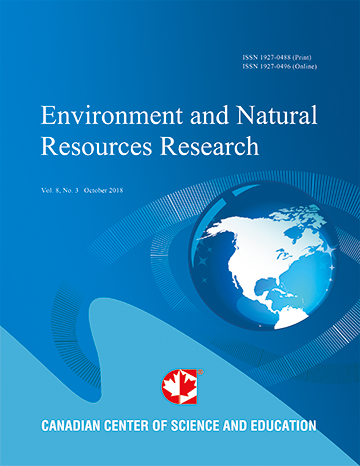Evaluation of Hydrological Data Collection Challenges and Flood Estimation Uncertainties in Nigeria
- Iguniwari Thomas Ekeu-wei
Abstract
In recent years, flooding has become a recurring problem in many regions including Nigeria, owing to changing climatic conditions, as well as anthropogenic factors such as poor land use management and urbanization that aggravate flood impact. To effectively manage and mitigate flood impact, hydrological data is required, and in many developing regions gauging stations are established, and gauge readers recruited and trained to collect and transmit such data to designated hydrological or water resource management agencies. This study focuses on understanding the challenges associated with hydrological data collection in Nigeria, using the Ogun-Osun River as a typical case, while analytically assessing how these challenges result in uncertainties that propagate unto flood frequency estimates that are used to inform flood management decisions. The findings reveal that (i) capacity and institutional gaps; lack of maintenance of hydrological infrastructure and surrounding landscape; poor data management architecture; and floods events that destroy hydrological equipment and inundate roads thereby restricting access to collected data during peak floods, are some of the challenges associated with hydrological data collection in developing regions; (ii) these conditions result in gaps in and shortened length of annual maximum hydrological time series required for flood frequency estimation, consequently leading to under or overestimation of low and high flood quantiles such as 1-in-2year and 1-in-100year floods, to levels of 0.67 m and 0.9 m respectively for the Ogun Osun River Basin. The need for improved data collation, management and adaptation of new technologies such as radar or sonar by the Ogun-Osun River Basin Development Authority is recommended in this study, to ensure sustainable and improved hydrological data collection, management, transferability and usability for flood management.
- Full Text:
 PDF
PDF
- DOI:10.5539/enrr.v8n2p44
Journal Metrics
Google-based Impact Factor (2016): 6.22
h-index (November 2017): 12
i10-index (November 2017): 19
h5-index (November 2017): 11
h5-median (November 2017): 12
Index
Contact
- Emily LinEditorial Assistant
- enrr@ccsenet.org
